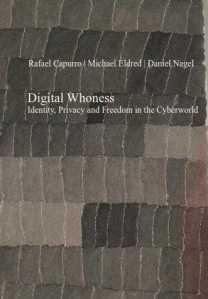Information Cultures in the Digital Age
Editors: Kelly, Matthew, Bielby, Jared (Eds.), Springer Verlag
This publication in honour of our colleague and master Rafael Capurro is for BITrum a remarkable opportunity to celebrate his patient work, dedication, inspiration and always ready friendship. The publication in itself represents a major contribution to the confrontation of problems in which BITrum is engaged since its origins.
 For several decades Rafael Capurro has been at the forefront of defining the relationship between information and modernity through both phenomenological and ethical formulations -as we can see for instance in our glossariumBITrum-. In exploring both of these themes Capurro has re-vivified the transcultural and intercultural expressions of how we bring an understanding of information to bear on scientific knowledge production and intermediation. Capurro has long stressed the need to look deeply into how we contextualize the information problems that scientific society creates for us and to re-incorporate a pragmatic dimension into our response that provides a balance to the cognitive turn in information science.
For several decades Rafael Capurro has been at the forefront of defining the relationship between information and modernity through both phenomenological and ethical formulations -as we can see for instance in our glossariumBITrum-. In exploring both of these themes Capurro has re-vivified the transcultural and intercultural expressions of how we bring an understanding of information to bear on scientific knowledge production and intermediation. Capurro has long stressed the need to look deeply into how we contextualize the information problems that scientific society creates for us and to re-incorporate a pragmatic dimension into our response that provides a balance to the cognitive turn in information science.
With contributions from 35 scholars from 15 countries, Information Cultures in the Digital Age focuses on the culture and philosophy of information, information ethics, the relationship of information to message, the historic and semiotic understanding of information, the relationship of information to power and the future of information education. This Festschrift seeks to celebrate Rafael Capurro’s important contribution to a global dialogue on how information conceptualisation, use and technology impact human culture and the ethical questions that arise from this dynamic relationship.
The Editors
Matthew Kelly is a scholar at Curtin University’s Department of Information Studies and at the International Institute for Hermeneutics.
Jared Bielby currently serves as Co-Chair for the International Center for Information Ethics and Editor for the International Review of Information Ethics.
How to Purchase the Book
The E-Book will be available in July 2016 with print to follow shortly after.
Go to Springer’s site to purchase






